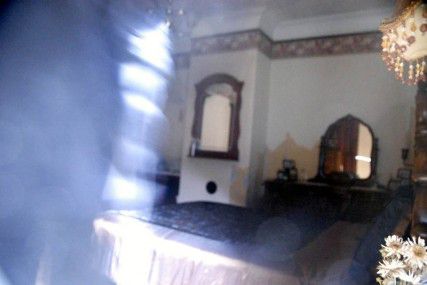As thousands of trick-or-treaters don ghost costumes on Wednesday, Boston Paranormal Investigators founder Thomas Elliott said specters do not actually celebrate Halloween.

“They inhabit an alternate universe that’s everywhere,” he said. “You don’t have to go to a dark creepy place to find a ghost. They’re around us all the time.”
Boston-based paranormal groups said while they receive more media attention in the fall, they operate year-round to investigate strange and mysterious occurrences.
Elliott said that since March 2006, his group has worked to promote extensive research in all aspects of the paranormal, including hauntings, UFOs and parapsychology.
“We essentially try to come up with enough evidence to prove that we [humans] go on after death,” he said.
Despite stigmas that might surround paranormal groups, Elliott said BPI is taken very seriously.
There are several groups similar to BPI in the New England area, and this is the first year conferences have brought all the groups together, he said.
“There clearly are believers out there who are keeping our businesses running,” he said.
Elliott said BPI refrains from using mediums, psychics, spiritualists and Ouija boards, as typically seen on TV and in films, opting for a more scientific approach.
“Most simply we use digital cameras because they show us translucent and transparent objects, as well as different shapes and sizes,” Elliott said. “After collecting the data, we then have to analyze what it represents. Some say that the flash represents dust, while others say that it’s spirit energy.”
The group also uses digital audio recorders, although spirits do not have vocal chords, he said.
“They can, however, manipulate electronics inside the recorder,” he said. “We ask them questions, and they respond by transcribing a message.”
Elliott said the majority of the required technology is common and cheap.
“It’s an activity anyone can afford,” he said.
Elliott said one of Boston’s haunted areas includes Georges Island in the Boston Harbor, where Fort Warren was built during the Civil War on Georges Island as a prison for Confederate soldiers and disloyal citizens.
After hearing of her husband’s imprisonment, a woman fled to the fort dressed as a man, carrying an old pistol.
While attempting to shoot a guard, the pistol went off and killed her husband. She was tried for murder and hung. Before she died, she asked to be dressed as a woman and wore black drapes to mimic a dress.
Today, the woman is said to haunt Georges Island.
“Rangers refuse to go out to certain places at night because they hear her moans and crying,” Elliott said. “What they hear is the spirit’s manipulation of sound waves in the atmosphere that are modulated like an instrument.”
Elliott said he enjoys his work.
“For me it’s part recreation, part work and part hobby,” he said. “You can’t lose. You’ll always have a good time.”
Scott Trainito, co-founder of Para Boston Investigators, said his group takes a scientific approach to dealing with paranormal activity.
“You have to believe that ghosts exist, although there is no scientific proof to support the claim,” he said.
Trainito said the group tries to examine claims by breaking everything down individually to have a sense of what could potentially be going on.
He said 99.9 percent of claims are explainable.
“People often have inclinations that something isn’t right or that someone is watching them,” he said. “By understanding electromagnetic fields and ion count, we can debunk a number of claims. In such scenarios, we typically find that there is a large amount of ions in the environment.”
Trainto said his organization is very credible and professional.
“We were recently featured in Forbes,” he said. “Our team is made up of people who have degrees as doctors, nurses and photography, giving us a diverse background to debunk as many claims as possible.”
Although the claims typically do not change, September and October are extremely busy months for the group, he said.
“Halloween is fresh in people’s minds, so they are much more inclined to get spooked during the season,” he said.
Boston University sociology professor and department chair Nancy Ammerman said paranormal suspicions are fairly common.
“All of us believe in things that aren’t exactly proven,” she said. “It’s a constant in human history. However, mass communication makes it a little more visible. Different forms of knowledge in the laboratory can determine what a person chooses to believe, but there isn’t much in relation to this topic.”
This is an account occasionally used by the Daily Free Press editors to post archived posts from previous iterations of the site or otherwise for special circumstance publications. See authorship info on the byline at the top of the page.



